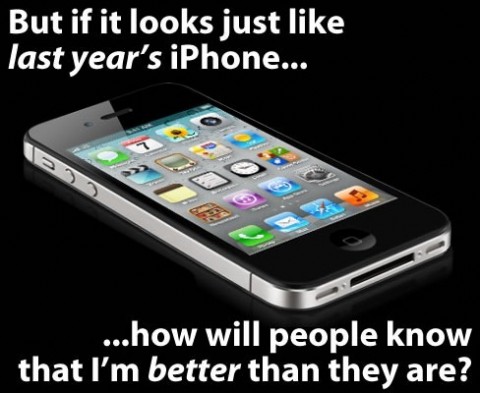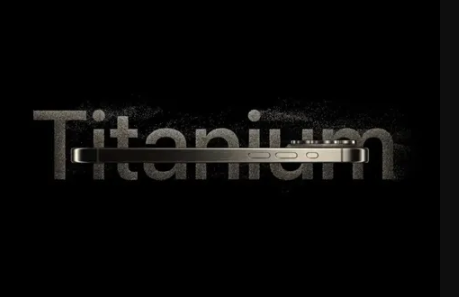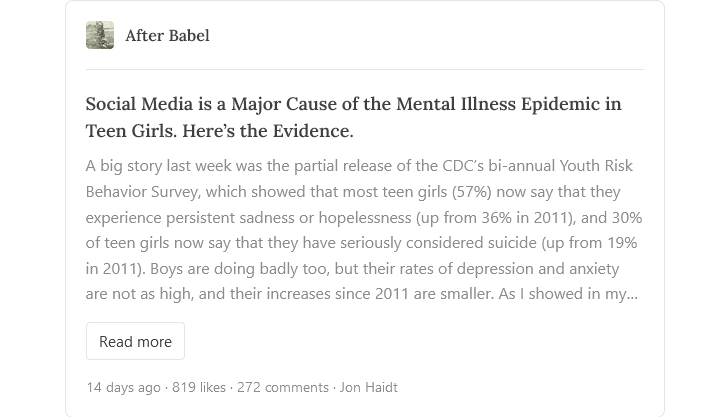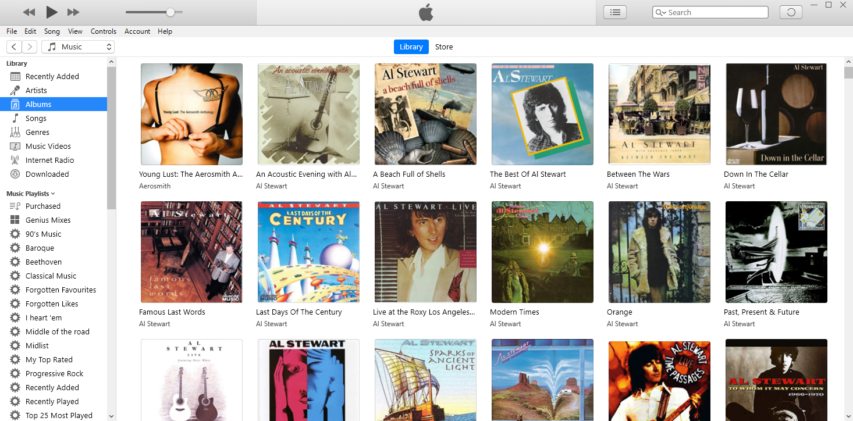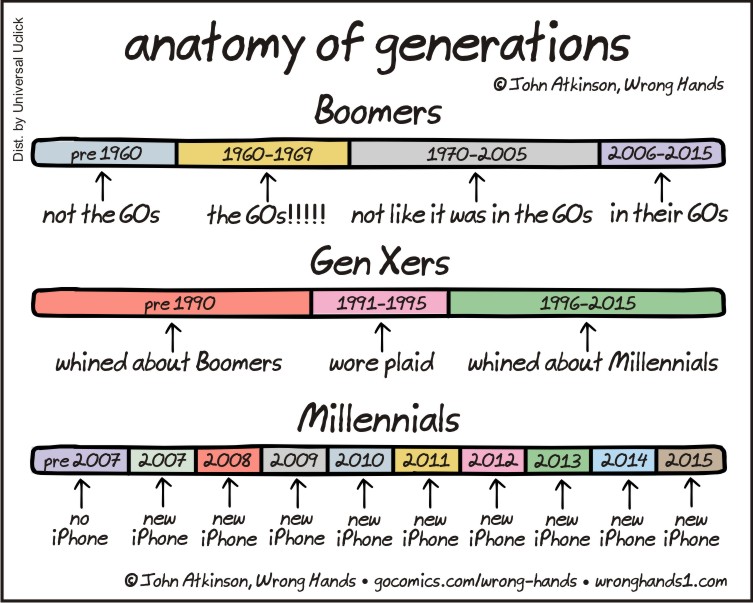We’ve all been there at some point, especially in waiting rooms or on public transit: someone is either accidentally or deliberately subjecting everyone else in the vicinity to their personal soundtrack:
The modern world is noisy, I get that. I’m fine dealing with busy, urban places. But that surely makes those other places where you can escape the noise all the more vital in the constant struggle for sanity in this century. This is perhaps the one issue on which uber-leftist Elie Mystal and I agree. He found himself this week in a waiting room, full of peeps “listening to content on their devices with no headphones … LOUDLY. What the SHIT is this?? Is this normal?” His peroration: “I’M DEAD. I CAN FOR REAL FEEL THE VEINS IN MY HEAD THROBBING. THIS IS HOW I DIED.” #MeToo, my old lefty comrade.
The degradation of public space in America isn’t entirely new, of course. As soon as transistor radios became portable, people would carry them around — for music or sports scores on construction sites or wherever. But the smartphone era — thanks once again, Steve Jobs, you were so awesome! — gave us an exponential jump in the number of people with highly portable sound-broadcasting machines in every public space imaginable. In other words: Hell on toast.
At the beginning of this phone surge, a term was even coined in Britain for playing music on your phone in public: “sodcasting” — after “sod” for “sodomite”, i.e. something that only a total ASSHOLE would do. Sodcasting was just an amuse bouche, though, compared with our current Bluetooth era, where amplifiers the size of golf-balls have dialed it all up to 11, and the age of full-spectrum public cacophony — including that thump-thump-thump of the bass that carries much farther than the sodcasting treble — has truly begun.
National parks? They are now often intermittent raves, where younger peeps play loud, amplified dance music as they walk their trails. On trains? There is now a single “quiet car” when once they all were, because we were a civilized culture. Walk down a street and you’ll catch a cyclist with a speaker attached to the handlebars, broadcasting at incredible volume for 50 feet ahead and behind him, obliterating every stranger’s conversation in his path.
On a bus? Expect the person sitting right behind you with her mouth four inches from your ears to have a very loud phone conversation, with the speaker turned up, and the phone held in front of her like a waiter holding a platter. The things she’ll tell you! Go to a beach and have your neighbors play volleyball — but with a loud speaker playing Kylie Minogue remixes to generate “atmosphere”.
When did we decide we didn’t give a fuck about anyone else in public anymore?
It’s not as if there isn’t an obvious win-win solution for both those who want to listen to music and those who don’t. Let me explain something that seems completely unimaginable to the Bluetoothers: If you can afford an iPhone, you can afford AirPods, or a headset, or the like. Put them in your ears, and you will hear music of far, far higher quality than from a distant Bluetooth, and no one else will be forced to hear anything at all! What’s not to like? It follows, it seems to me, that those who continue to refuse to do so, who insist that they are still going to make you listen as well, just because fuck-you they can, are waging a meretricious assault on their fellow humans.
What could be the defense? The Guardian — who else? — had a go at it:
the ghetto blaster reminds us that defiantly and ostentatiously broadcasting one’s music in public is part of a history of sonically contesting spaces and drawing the lines of community, especially through what gets coded as “noise” … it represents a liberation of music from the private sphere in the west, as well as an egalitarian spreading of music in the developing world.
The first point is not, it seems to me, exculpatory. It’s describing an act of territorial aggression through sound. The second point may have some truth to it — but it hardly explains the super-privileged NYC homos on the beach or the white twenty-something NGO employees in the park. But would I enjoy living in Santo Domingo where not an inch — so far as I could see and hear when I was there — was uncontaminated by overheard fluorescent lights and loud, bad club music? Nope.
Whenever I’ve asked the sonic sadists whether they actually understand that they are hurting others, they blink a few times, their mouths begin to form sentences, and then they look away. Or they’ll tell me to go fuck myself, or say I’m the only one who has complained, which is probably true because most people don’t want public confrontation, and have simply given up and moved on. Then there is often the implication that I’m the one being the asshole. On no occasion has anyone ever turned their music off after being asked to. Too damaging to their pride.
One reddit forum-member had this excuse: “It’s because earbuds hurt my ears and headphones don’t stay on.” Another got closer: “A lot of people that play their music out loud think that others won’t mind it.” Self-absorption. One other factor is simply showing off: at Herring Cove, rich douchefags bring their expensive boats a little off-shore so they can broadcast with their massive sound systems. It strengthens my support for the Second Amendment every summer.

